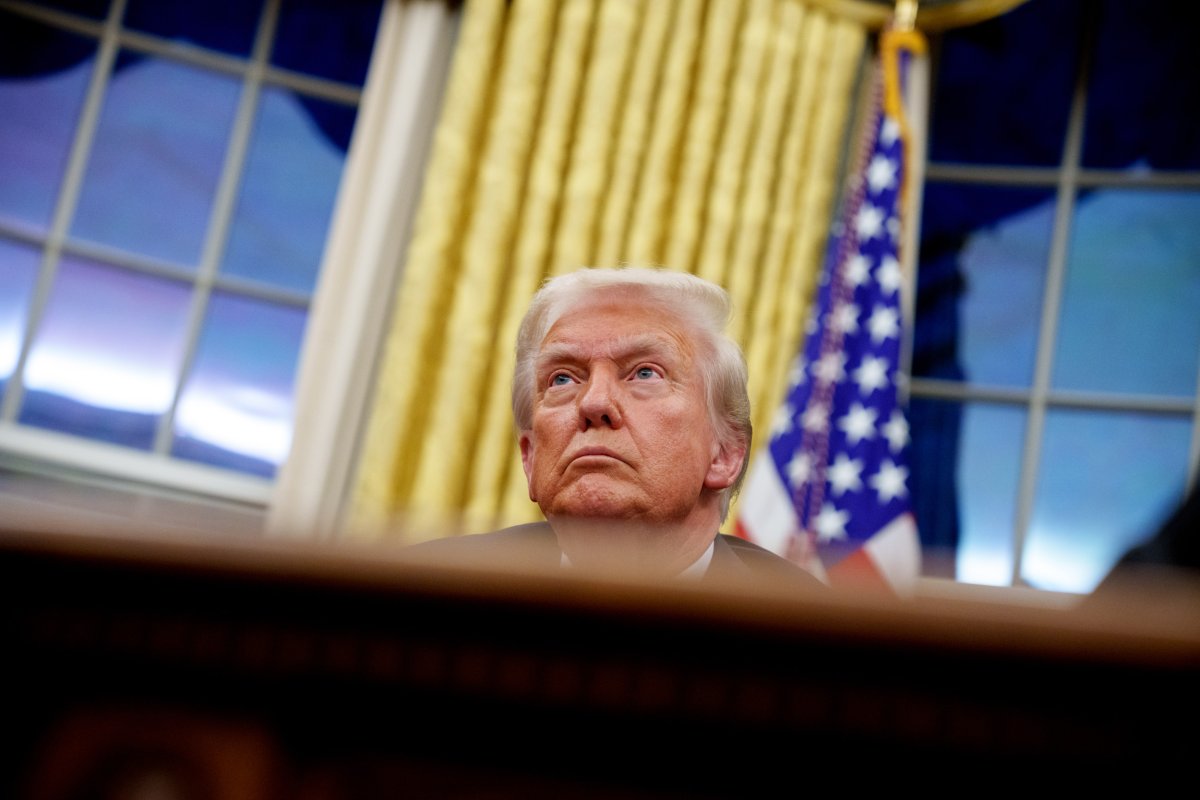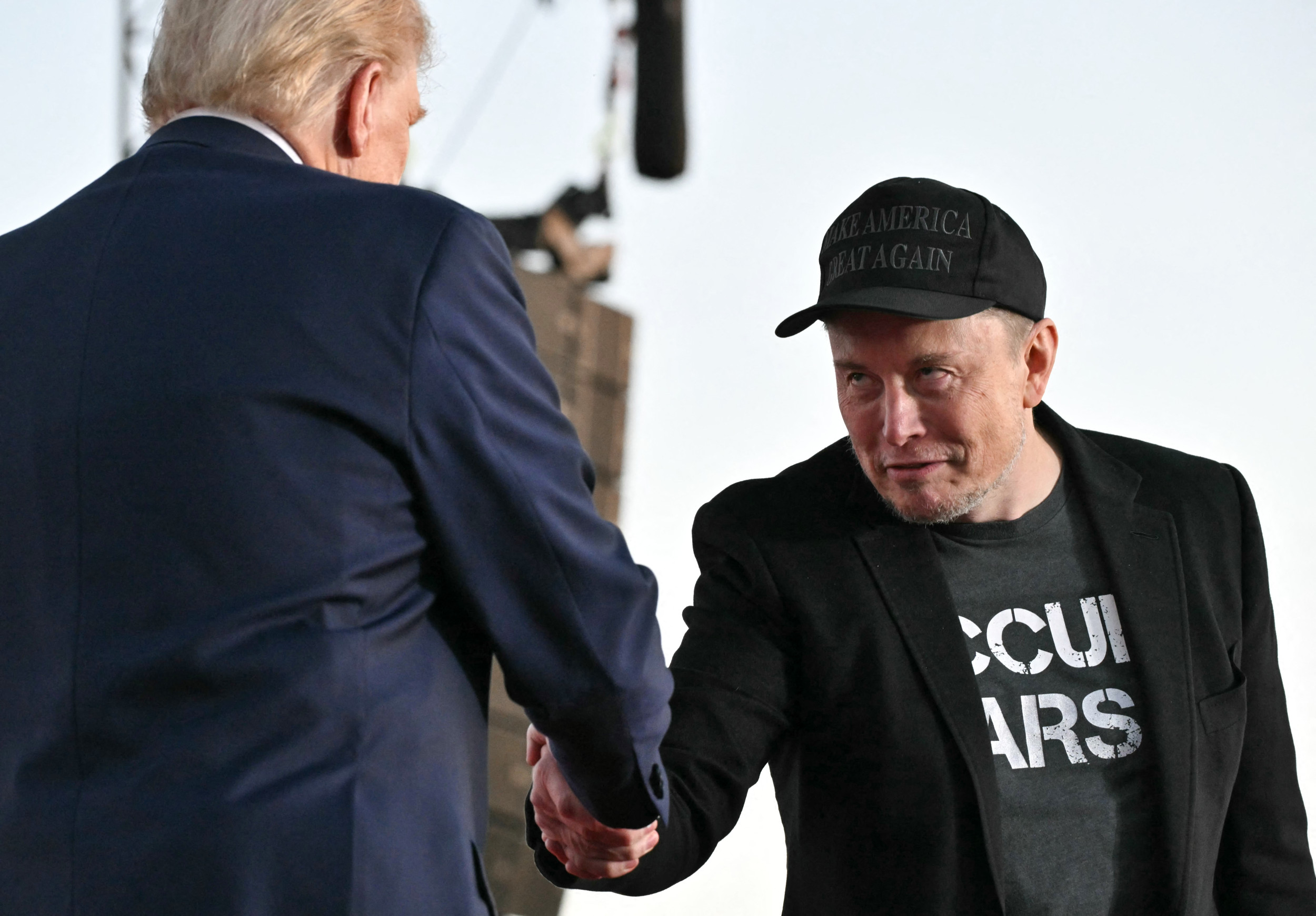President Donald Trump announced a sweeping trade move on Thursday, declaring that the United States will impose reciprocal tariffs on nations that charge higher duties or impose indirect taxes like the Value-Added Tax (VAT) on American exports.
"This should have been done years ago," Trump said in the Oval Office. "This is going to be the thing that makes our country really prosperous again, and this is going to be what pays down the $36 trillion in debt."
Why It Matters
The White House has insisted that its new tariffs would equalize the ability of the U.S. and foreign manufacturers to compete. The European Union, for example, has an average VAT of 21.8 percent, which Trump administration officials argue puts American companies at a disadvantage.
Economists have warned that tariffs risk raising inflation and that the burden could ultimately be shouldered by American consumers. While Trump campaigned on lowering costs for Americans, many economic analysts believe tariffs will have the opposite effect, potentially increasing prices on imported goods.
What To Know
A key aspect of Trump's new tariff initiative is his long-standing view of the VAT, a consumption tax widely used in Europe and other parts of the world. The president has had a long-held belief that a VAT functions as an unfair trade barrier.
He argues that a VAT functions as an indirect tariff because it is refunded to exporters but applied to U.S. imports, making American goods less competitive. However, economic experts dispute this characterization, noting that VATs are standard consumption taxes that apply within domestic markets rather than targeted trade barriers.
Countries with VAT include Germany at 19 percent, France at 20 percent, Japan at 10 percent, and China at 13 percent. The highest VAT in the world is Hungary at 27 percent. The U.S. does not have a federal VAT system.
The tariff increases will be customized for each country, with one of the goals being to force new trade negotiations.
However, economists warn that, under current law, the cost of these tariffs will likely fall on American consumers and businesses—either directly or through higher prices.
"While it may seem like a compelling political argument to justify across-the-board tariffs on the EU, it instead reflects a complete misunderstanding of what a VAT is and how it works," says an analysis from the Tax Foundation, a research think tank based in Washington, D.C.

According to a Tax Foundation analysis, Trump's argument reflects a misunderstanding of how a VAT works. The report explains that in the U.S., "sales taxes are typically destination-based, meaning that the tax is owed where the product is received or consumed."
This means that a European customer purchasing from a U.S. retailer does not pay U.S. sales tax, just as an American buyer can receive a VAT rebate on purchases made in Europe.
"Neither is a subsidy. These are simply consumption taxes falling on the consumer," the report reads.
Still, Trump's administration has argued that its new tariffs would level the playing field for U.S. manufacturers against foreign competitors.
Economic Uncertainty
The politics of tariffs pose a potential risk for Trump, as rising costs and slower economic growth could undercut his economic agenda. If inflation climbs or economic expansion stalls, his tariff strategy could become a political liability.
Trump has already announced tariffs on Canada, Mexico and China—major trading partners of the U.S.
He agreed to pause the 25 percent tariffs on Canada and Mexico for 30 days after Canadian Prime Minister Justin Trudeau and Mexican President Claudia Sheinbaum agreed to increase border enforcement efforts in response to Trump's demand that they crack down on immigration and drug trafficking.
However, the 10 percent tariff on Chinese products went into effect on February 4.
Trump also enacted a 25 percent tariff on steel and aluminum imports on Monday.
What People Are Saying
President Donald Trump on Thursday: "I've decided for purposes of fairness that I will charge a reciprocal tariff. It's fair to all. No other country can complain."
The Tax Foundation, a research think tank based in Washington, D.C, in an analysis report: "The Trump administration appears to be moving in a 'reciprocal' policy direction despite the significant negative economic consequences for American consumers of across-the-board tariffs on goods coming into the U.S."
What Happens Next
The administration has not provided its own estimates on how the tariffs could impact the economy, but when pressed Trump said the impact on prices was uncertain.
"Prices could go up somewhat short-term," he said. "But prices will also go down."
fairness meter
About the writer
Jesus is a Newsweek reporter based in New York. Originally from Bogotá, Colombia, his focus is reporting on politics, current ... Read more



